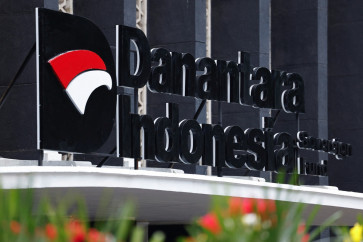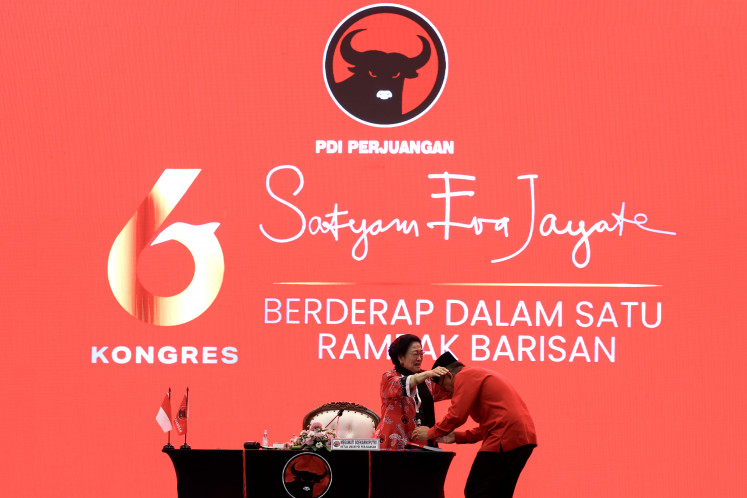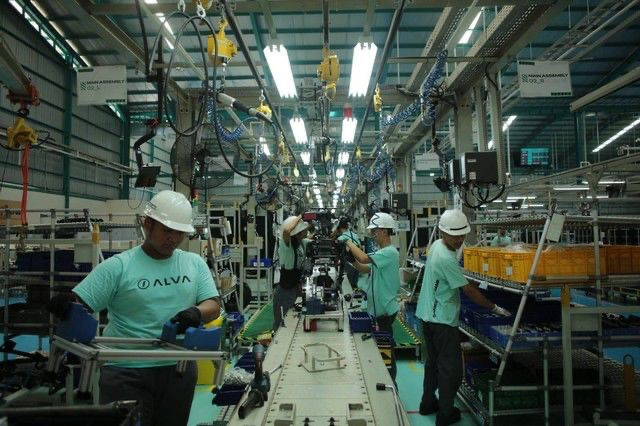Popular Reads
Top Results
Can't find what you're looking for?
View all search resultsPopular Reads
Top Results
Can't find what you're looking for?
View all search resultsLess talk, more action needed to solve palm oil deadlock: IDH
Endless debate between Indonesia and the European Union, with the former accusing the latter of being biased, has gone on for more than a year since the EU parliament decided to phase out palm oil use in biodiesel by 2021
Change text size
Gift Premium Articles
to Anyone
E
ndless debate between Indonesia and the European Union, with the former accusing the latter of being biased, has gone on for more than a year since the EU parliament decided to phase out palm oil use in biodiesel by 2021.
But a Netherlands-based environmental group, the Sustainable Trade Initiative (IDH), has offered practical solutions that would allow all stakeholders, including EU buyers, to actually work on the issue instead of just debating about it.
“The involvement of all players in the supply chain is crucial to working out the national policies on addressing the sustainability of palm oil production in the country,” IDH country director Fitrian Ardiansyah said at a discussion on Friday.
According to IDH, the supply chain sector is also responsible for improving smallholders’ productivity, ensuring good agriculture practices, providing good-quality seeds and also opening access to the capital.
The solution came in IDH’s project to create prototypes of effective supply chain models that can improve sustainability among smallholders. The five-year project, which started in 2015, is taking place in Indonesia and Malaysia, which account for 80 percent of global palm oil production.
“For Indonesia, the first thing to do is map out all the smallholders’ plantations and legalize their land permits. After that, we should strengthen their community [so they can] get financing,” Fitrian said.
He emphasized that the Oil Palm Plantation Fund Management Agency (BPDP-KS) was not enough to cover the costs of all replanting projects, which he estimated could reach US$4 billion as the agency only provided 50 percent of the replanting cost per hectare.
“Therefore, the gap in funding must be filled by the private sector, financial institutions and non-governmental organizations [NGO],” he added.
The Indonesian Oil Palm Estate Fund (BPDP-KS) is an agency set up by the government in 2015 under a presidential regulation that targets to replant 2.4 million ha of unproductive land for smallholder plantations, which span 4.6 million ha combined.
Council of Palm Oil Producing Countries (CPOPC) executive director Mahendra Siregar, who represents Indonesia and Malaysia, suggests a bilateral solution through a framework agreement.
“It is better for us to have a framework that is honored by all; it won’t let anybody act as judge and jury in this dispute,” he said.
Mahendra believes the EU may not be the one to survive when Indonesia stops its palm oil exports to the bloc, as it is no longer Indonesia’s main export destination.
It may have been the case in 1990, when 75 percent of Indonesia’s exports went to the EU, but the figure has since declined drastically to 14 percent last year.
“We have seen inconsistency from the EU, first when it introduced an international standard, such as the RSPO [Roundtable Sustainable Palm Oil], to which we complied. However, it turns out [the RSPO standards were] not enough for them,” he said.
Meanwhile, to date, representatives from the EU and Indonesia have yet top provide constructive updates on the issue, offering only arguments supported by the same reasons and data.
On Friday, in a discussion held by the Jakarta Foreign Correspondent Club (JFCC) in Jakarta, the EU’s claim that the bloc “never single-targeted palm oil” was repeated.
“[The restriction] is just a small part in the goal of lowering gas emissions. It does not mean that the EU can’t import [palm oil in the future], but the EU parliament won’t consider it as a renewable energy,” said Vincent Guérend, EU Head of Delegation and Ambassador to Indonesia and Brunei Darussalam.
Guérend further said the EU’s measures were part of a wider goal to slash greenhouse gas emissions to 20 percent by 2050, and they include all sectors, not only palm oil.
Indonesia, who was represented by Purbaya Yudhi Sadewa, a special staff of the Office of the Coordinating Maritime Affairs Minister, continued its offensive stance by underlining how vital palm oil was to the archipelago.
He cited the sector’s employment rate of 17.5 million people, or around 6 percent of Indonesia’s total population of 261 million in 2016.










